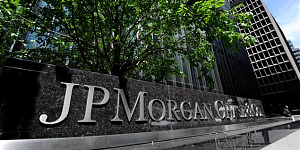Banks and businesses expect inflation to stick in the upper band of the Central Bank of Kenya’s (CBK) preferred range of five per cent plus or minus 2.5 percentage points, reflecting higher input costs by producers, higher taxes and possible maize shortage.
Businesses the CBK polled in the November Market Perceptions Survey said inflation would not rise past CBK target of 7.5 per cent but will average above five per cent in almost all sectors in the next 12 months.
Inflation in November rose to a four-month high of 5.56 percent due to rise in food and fuel prices, up by from 4.95 percent recorded in October, with pressure expected to remain until the end of this month due to the festive season.
On the plus side, a stable exchange rate and weak demand pressure will help keep the cost of living within range, but there remains a risk due to supply-side shocks.
“However, expected pick up in private sector lending after the lifting of the interest capping law, fluctuations in international oil prices and increase in prices of foods items such as maize flour were cited as likely risks to inflation over the next 12 months,” said the CBK in the report.
Businesses also cited higher cost of production, which has the potential of pushing up the prices of goods and services in the next one year, although the businesses will find it hard to do so due to muted demand in a slow market.
Sixty-five percent of the polled businesses said they saw an increase in input costs between September and October.
“Most respondents reported increases in costs related to energy, transportation, raw materials, freight charges and construction materials, while the cost of labour remained largely the same during the period,” CBK said.
About 77.2 per cent of the private sector players polled believe transport costs would rise further while 74 per cent see energy costs gaining in the short term.
And 69.9 per cent see the culprit in raw materials for driving up production cost 64.6 per cent say construction materials will rise in prices.
Companies are facing a tough time managing the cost of inputs on final prices of goods, opting to take thin margins than end up with dead stock.
According to the Markit Stanbic Bank Purchasing Managers’ Index for November, firms sought to lower selling prices for the second month in a row as new orders grew at the slowest pace in six months. The index said the low demand has mainly been driven by tough economic condition and consistently raising inflation that has led to a decline in spending power.







































